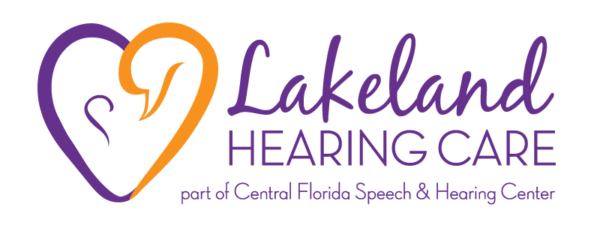Hearing Loss
We help patients of all ages find a solution for their hearing loss.
Hearing and Your Health
Although hearing loss is incredibly common – approximately 15% of adults in the U.S. have some degree of hearing loss – it is not very well understood by many people. At Lakeland Hearing Care, we believe our role is to help educate our patients on what hearing loss is, how it works, what hearing aids can do for you, and what you can expect from hearing solutions. The more you know, the better equipped you’ll be to make decisions about your hearing and the more empowered you’ll feel to take charge of your hearing loss.
Better hearing means you will have better health. Your hearing is connected to your overall health and well-being. With better hearing, you will be able to better communicate with the people who matter to you. This can lead to spending more time with loved ones, feeling more energized, and enjoying life to the fullest. Hearing is an important part of your well-being, don’t let hearing loss affect your health.
Hearing and Brain Health
Our ability to hear is connected to our overall health. This is because we don’t hear when sound reaches the ear, but when sound reaches the auditory cortex of the brain. Many people don’t realize that we hear with our brain. When sound reaches the auditory cortex, it is then transformed into information and processed. That information is then stored as memory. When you have hearing loss, your brain misses out on certain sounds and frequencies that it needs to stay active and healthy.
When hearing loss is left untreated, then your brain doesn’t receive the proper stimulation it needs and often has to work harder just to hear the little it can. This can result in feelings of fatigue or exhaustion after social interactions. This can lead to social isolation because you feel too tired to socialize with other people or you may feel embarrassed because you can’t hear the conversation well. Over time, this can lead to cognitive decline and even dementia.
Studies have proven there is a link between hearing loss and dementia. In fact, the risk of dementia increases by 36% for those who have a hearing loss that is greater than 25dB. There is good news though. Hearing aids can effectively manage your hearing loss and provide the brain with the proper amplification it needs to remain active and healthy. Call us today to schedule an appointment and discover how hearing aids can help you hear – and feel – your best.

Types of Hearing Loss
There are four types of hearing loss: sensorineural, conductive, mixed, and noise-induced.
Sensorineural hearing loss is the most common type of hearing loss and involves a problem with the inner ear. This type of hearing loss can be caused by noise exposure, head trauma, aging, malformation or abnormality of the inner ear, otosclerosis, or Meniere’s disease. Sensorineural hearing loss responds well to hearing aids.
Conductive hearing loss is when there is a problem with the outer ear, ear canal, eardrum, or middle ear. This is caused by ear infection, fluid in the ears, impacted earwax, foreign object in the ear, allergies, perforated eardrum, or malformation of the outer or middle ear. Conductive hearing loss can often be treated medically with an antibiotic or surgery.
Mixed hearing loss is a combination of sensorineural and conductive hearing losses. The sensorineural portion can be helped with hearing aids and the conductive portion can usually be treated medically.
Noise-induced hearing loss is a type of sensorineural hearing loss that is caused by a sudden impact noise or exposure to loud noise over time. Noise-induced hearing loss is increasingly common in young adults. The best way to prevent noise-induced hearing loss is by wearing hearing protection and avoiding dangerously loud sounds.
Signs of Hearing Loss
Hearing loss is a gradual process, and for this reason many people don’t identify it right away. Often times, a close friend or family member will notice the signs of hearing loss before you do. If you have noticed any of the following signs, then you may have hearing loss:
- You have to turn the TV up louder in order to understand.
- You find yourself complaining about people mumbling.
- You ask people to repeat themselves on a regular basis.
- You miss the punchline of a joke, but you laugh anyway so no one notices.
- You spend less time with friends and family because it’s harder to hold a conversation than it used to be.
If any of these sounds familiar, it might be time to get your hearing checked. It’s important to be proactive about your hearing health and schedule annual hearing appointments, so we can catch any signs of hearing loss early. Early prevention is crucial to preserving your speech comprehension and hearing ability.
Online Hearing Screening
Think you may have hearing loss? Lakeland Hearing Care is here to help you! Start your journey toward better hearing by taking our quick and easy hearing quiz.
Contact Us
Our Office
3020 Lakeland Highlands Road
Lakeland, FL 33803-4338
Call or Text:
Walk-In Hours Monday through Thursday 10AM – 11:30AM & 2PM – 3PM
Monday – Thursday: 8AM – 6PM
Friday: 10AM – 4PM
Saturday: Closed
Sunday: Closed

